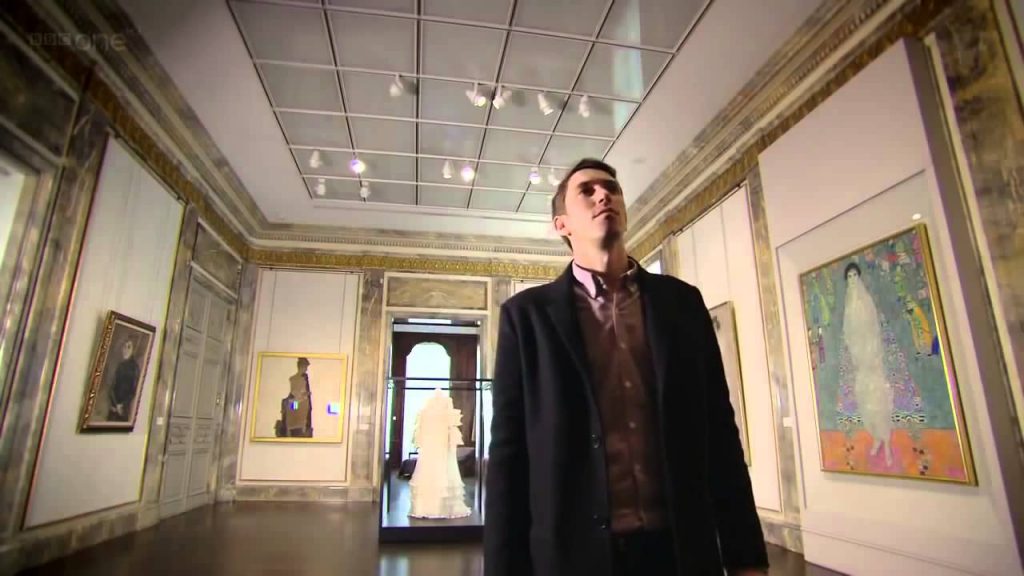What makes a piece of art worth tens of millions dollars at auction? A number of things, but not always the things you’d think. BBC’s The World’s Most Expensive Paintings chronicles the world’s ten most valuable paintings, by way of journalist Alastair Sooke’s guided tour of the collectors, locales, and Christie’s and Sotheby’s auction houses that link these great pieces of art together. One of the more intriguing phenomena touched on in the film is the concept of provenance, which is the added value a piece of art has above and beyond what it otherwise would be worth due to the prestige and/or wealth of its previous owners. A painting previously owned by David Rockefeller, an example covered in the lower half of the top ten list, can and does fetch considerably more than a comparable piece without the same ownership track record. Arne Glimcher, a renowned art dealer, states:The whole thing of art and money is ridiculous. The value of a painting at auction is not necessarily the value of a painting. It is the value of two people bidding against each other, because they really want the painting. The value of the works covered range from a “lowly” Rothko piece that sold for $72M, to a Picasso that had been whereabouts unknown for fifty years for $106. 4M in 2010. Sooke strays from the focal point of the film – art and money – to shed some light on the world where these two things change hands in such mythical fashion. He takes us inside auction rooms at Sotheby’s and similar houses and shows us the process that buyers, and more often their well-compensated art buying representatives, go through in acquiring this caliber of artwork. Christopher Burge, an auctioneer with one of the more impressive resumes in the business, tells many a story and takes us through the auctions from his perspective. Sooke even haphazardly conducts a “small” auction himself, flanked by Burge overseeing it. One of many insider stories from Burge tells of a Picasso that sold in 1990, amidst global financial duress, that somehow defied the fiscal apprehensions that otherwise dried up so many other markets.
What Makes Art Valuable?

